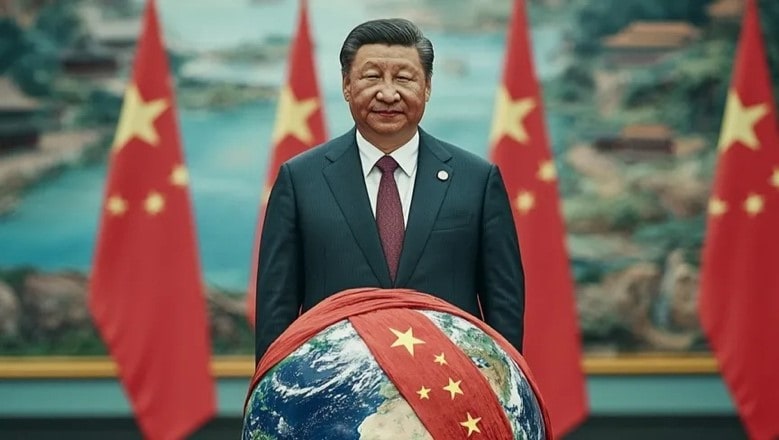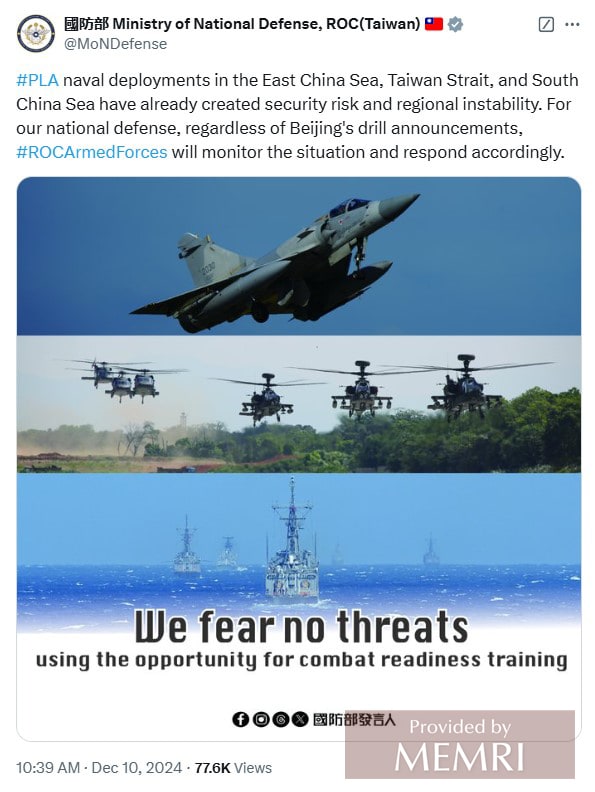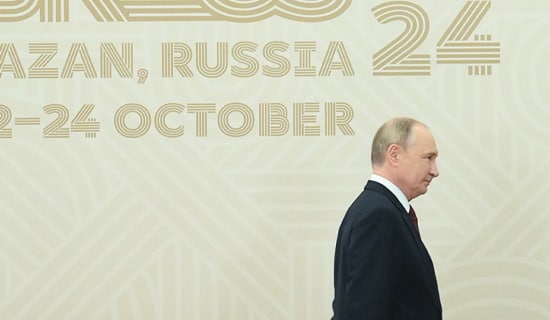China's rise as an economic and military power was nothing short of phenomenal. Many believed that the Chinese century was upon us and that it was only a matter of time before China surpassed the U.S. as the world's predominant superpower.
But as they say, the fates of nations move in cycles... What is on an upswing today will inevitably be on a downward path tomorrow. Unlike most empires, whose rise and fall took place over centuries, China's cycle is happening in just a matter of decades. Yet, the communist country has already seen its peak and has started to decline even before it became a bona fide world empire.

(Source: Asharq.com)
Conditions That Caused China's Rise
Five conditions contributed to China's meteoric rise.
The first is the assurance of security. China's geopolitical position faced no threats since the end of the Vietnam War despite being surrounded by 19 countries, many of whom are powerful, unstable, or both. The assurance of security allowed the Chinese Communist Party (CCP) to focus on its economy.
Second, China was ushered into the global economy, thanks to the U.S. Leveraging on its huge population and low labor cost, China rode the wave of ever-increasing global trade brought about by U.S.-led trade liberalization.
Third, the government of Deng Xiaoping opened the economy and adopted capitalist policies. State control was eased allowing the flow of foreign investments. Industries were created and infrastructure was built. Presidents Jiang Zemin and Hu Jintao provided continuity to Deng's policies amid a politically stable environment.
Fourth, when China opened itself to trade in 1978, the country enjoyed a demographic advantage where baby boomers filled the workforce. Back then, there were 15 workers for every retiree.
Fifth, China was nearly self-sufficient in food, metals, wood, water, and energy. This made manufacturing cheap.
The Fall
Yet, a confluence of bad policies under the leadership of Xi Jinping as well unavoidable circumstances have conspired to foil China's meteoric rise. Among Xi's damaging policies were the abandonment of free-trade mechanisms in favor of rigorous state control, stringent anti-espionage laws, debt-driven growth and bad behavior in trade and geopolitical relations. Unavoidable circumstances include a rapidly aging population and depleting natural resources.
China is running out of people. Its baby boom generation is retiring, and the one-child policy generation has taken over. Over the next decade, China will lose some 70 million people from its workforce while gaining 130 million senior citizens. The worker-to-retiree ratio will be a perilous 2:1 within the next ten years.
Exacerbating matters is the country's rapidly depleting natural resources. Half of its rivers have dried up and much of its underground water is deemed unfit for human contact. China has as much water supply as Saudi Arabia today. Consequently, China has become a net importer of food. It has also become a net importer of oil, gas, and coal. Importing raw materials has increased manufacturing costs.
Foreign direct investments have plummeted due to Xi's stringent anti-espionage laws relating to foreign investors. Capital flight in the trillions of dollars has occurred, not only among foreign firms but also Chinese citizens who wish to move their money and families to safer havens.
In trade, stiff tariffs were imposed on Chinese exports due to unfair subsidies and product dumping. This has curtailed China's access to key markets like the EU and U.S. Trade cooperation has turned into trade wars.
The geopolitical security China once enjoyed is now under threat. Xi's hegemonic ambitions caused China to embark on a spate of extrajudicial territorial grabs, all of which threaten regional security. As a result, America and its allies have banded together to encircled China. The threat of armed conflict looms.
Despite the headwinds, Xi is unable to correct the course. This is because Xi has always favored the concentration of political power to himself over economic efficiency. This was painfully evident when he imposed his Zero Covid Policy and crackdown on Hongkong dissidents.
How Declining Powers Act
China's 40-year growth spurt pumped-up the country's financial and military muscle, as well as its ambitions. Xi and his cadre believe that this is the century wherein the communist nation becomes the world's predominant superpower. But as economic reversals and geopolitical pushbacks work against them, they are compelled to act more aggressively. This makes them dangerous.
Domestically, China is acting more like a fascist state. This is characterized by: the centralization of power and worship of the central leader; hyper nationalism; a culture of revenge toward nations who stand in the way of their ambitions; intensive surveillance and severe discipline of its citizens; blurring the lines between civil and military life; and worshiping military strength.
Economically, declining powers prioritize leverage over cooperation in trade to gain an advantage. Leverage comes in the form of controlling vital trade routes such as the South China Sea and by hoarding the supply of raw materials like rare earth metals.
Military, declining powers drastically increase their military spending and act more aggressive in engagements. The military might is used to influence countries because their economic power – in the form of trade and loans – no longer suffices.
And because their economic and military power cannot match that of the incumbent superpower, declining powers form alliances with like-minded countries to sow destabilization. This explains China's alliance with Russia, North Korea, and Iran.

On December 10, 2024, the Taiwanese military was put on high alert and closely monitored the Chinese People's Liberation Army's (PLA) air and naval deployments, after Beijing reserved seven airspace areas east of its Zhejiang and Fujian provinces. (Source: Taipeitimes.com)

On December 11, 2024, the Taiwanese Presidential Office called on China to stop all "provocative acts," saying ongoing Chinese military activity in the nearby waters of Taiwan was a "blatant disruption" of the "status quo" of security and stability in the Indo-Pacific region. Defense officials said they have detected Chinese ships since both off Taiwan and farther out along the first island chain. They described the formations as two walls designed to demonstrate that the waters belong to China. (Source: Taipeitimes.com)
China will behave more aggressively in the coming years. It will only cool down once it realizes that it cannot compete with the incumbent superpower. Unfortunately, history shows that this realization only comes after losing a war. China will have to abandon its hegemonic ambitions eventually.
Let us hope this happens before it instigates a war.
*Andrew J. Masigan is the MEMRI China Media Studies Project Special Advisor. He is a Manila-based economist, businessman, and political columnist for The Philippine Star. Masigan's articles in MEMRI are also published in The Philippine Star.




.jpg)
